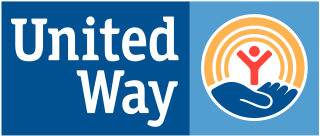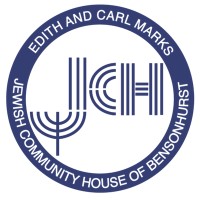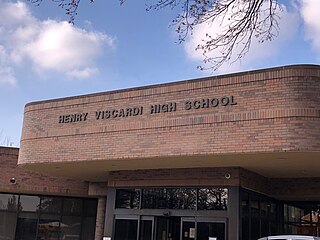Social work is an academic discipline and practice-based profession concerned with meeting the basic needs of individuals, families, groups, communities, and society as a whole to enhance their individual and collective well-being. Social work practice draws from liberal arts, social science, and interdisciplinary areas such as psychology, sociology, health, political science, community development, law, and economics to engage with systems and policies, conduct assessments, develop interventions, and enhance social functioning and responsibility. The ultimate goals of social work include the improvement of people's lives, alleviation of biopsychosocial concerns, empowerment of individuals and communities, and the achievement of social justice.
Pro bono publico, usually shortened to pro bono, is a Latin phrase for professional work undertaken voluntarily and without payment. The term traditionally referred to provision of legal services by legal professionals for people who are unable to afford them. More recently, the term is used to describe specialist services provided by any professional free of charge to an individual or community.

United Way is an international network of over 1,800 local nonprofit fundraising affiliates. Prior to 2015, United Way was the largest nonprofit organization in the United States by donations from the public. Individual United Ways mobilize a single fundraising campaign to raise money for various nonprofits, with most donations coming through payroll deductions.
The American Society for the Prevention of Cruelty to Animals (ASPCA) is a non-profit organization dedicated to preventing animal cruelty. Based in New York City since its inception in 1866, the organization's mission is "to provide effective means for the prevention of cruelty to animals throughout the United States."

Newman's Own is an American food company headquartered in Westport, Connecticut. Founded in 1982 by actor Paul Newman and author A. E. Hotchner, the company donates all of its after-tax profits to charity through Newman's Own Foundation, a private nonprofit foundation that supports child-focused programs.

The Legal Aid Society is a 501(c)(3) non-profit legal aid provider based in New York City. Founded in 1876, it is the oldest and largest provider of legal aid in the United States. Its attorneys provide representation on criminal and civil matters in both individual cases and class action lawsuits. The organization is funded through a combination of public grants and private donations. It is the largest recipient of funding among regional legal aid providers from the New York City government and is the city's primary legal services provider.

The Edith and Carl Marks Jewish Community House of Bensonhurst, sometimes shortened to "the J" or "the JCH", was incorporated in 1927 and has helped over one million Jews in the Bensonhurst neighborhood of Brooklyn, New York City.

The Fresh Air Fund is a 501(c)(3) not-for-profit agency founded in 1877. At sleep-away camps in New York’s Mid-Hudson Valley, visiting volunteer host families along the East Coast in NYC-based programs, children get to have new experiences, learn new skills and gain new perspectives. Fresh Air children also participate in year-round leadership, career exploration and educational programs. The Fresh Air Fund has served more than 1.8 million children since its founding.
The Jewish Federation (JFED) is a secular Jewish non-profit organization found within many metropolitan areas across the United States with a significant Jewish community. They provide supportive and human services, philanthropy, financial grants to refugees around the world, humanitarian and disaster relief, host leadership conferences and fellowship opportunities for women and youth, charitable drives, help those in need navigate comprehensive resources, and provide outreach to at-risk Jewish populations in 70 countries worldwide, and more. While the Jewish Federation was created to primarily service Jewish communities, they also provide for other communities. All federations in North America operate an annual central campaign, then allocate the proceeds to affiliated local agencies. There are currently 146 Jewish Federations, the national umbrella organization for the federations is the Jewish Federations of North America, in the United States.

Social entrepreneurship is an approach by individuals, groups, start-up companies or entrepreneurs, in which they develop, fund and implement solutions to social, cultural, or environmental issues. This concept may be applied to a wide range of organizations, which vary in size, aims, and beliefs. For-profit entrepreneurs typically measure performance using business metrics like profit, revenues and increases in stock prices. Social entrepreneurs, however, are either non-profits, or they blend for-profit goals with generating a positive "return to society". Therefore, they use different metrics. Social entrepreneurship typically attempts to further broad social, cultural and environmental goals often associated with the voluntary sector in areas such as poverty alleviation, health care and community development.
AARP Foundation Experience Corps is an intergenerational, volunteer-based tutoring program that engages adults age 50 and older as literacy tutors for struggling students in public schools. The program aims to empower volunteers to serve in their community and work with America's most vulnerable children.

The Entertainment Community Fund, formerly The Actors Fund, is a 501(c)(3) charitable organization that supports performers and behind-the-scenes workers in performing arts and entertainment, helping more than 17,000 people directly each year. Serving professionals in film, theatre, television, music, opera, radio, and dance, the Fund's programs include social services and emergency financial assistance, healthcare and insurance counseling, supportive and affordable housing, and employment and training services. The Fund owns and operates the Lillian Booth Actors Home, a skilled nursing and assisted living facility in Englewood, New Jersey.

LGBTQ movements in the United States comprise an interwoven history of lesbian, gay, bisexual, transgender and queer social movements in the United States of America, beginning in the early 20th century. A commonly stated goal among these movements is social equality for LGBTQ people. Some have also focused on building LGBTQ communities or worked towards liberation for the broader society from biphobia, homophobia, and transphobia. LGBTQ movements organized today are made up of a wide range of political activism and cultural activity, including lobbying, street marches, social groups, media, art, and research. Sociologist Mary Bernstein writes:
For the lesbian and gay movement, then, cultural goals include challenging dominant constructions of masculinity and femininity, homophobia, and the primacy of the gendered heterosexual nuclear family (heteronormativity). Political goals include changing laws and policies in order to gain new rights, benefits, and protections from harm.
Children's Institute Inc. (CII) is a nonprofit organization that provides services to children and families healing from the effects of family and community violence within Los Angeles. Founded in 1906 by Minnie Barton, Los Angeles's first female probation officer, the organization was first designed to help troubled young women who found themselves adrift in Los Angeles. The organization has since expanded its services to at-risk youth in Los Angeles who are affected by child abuse, neglect domestic and gang violence as well as poverty. CII is a multi-service organization that combines evidence-based clinical services, youth development programs and family support services designed to address the whole child and entire family. The organization provides various forms of trauma support—including therapy, intervention services, parenting workshops, early childcare programs and other support services offered in English, Spanish and Korean.

Henry Viscardi School is a state supported special school in Searingtown, New York operated by the Viscardi Center in New York for severely disabled students requiring a specialized educational setting with medical supports. The school is located in Searingtown, New York.

The Chinese Community Center at 60-64 Mott Street is home to both the Chinese Consolidated Benevolent Association (CCBA), the oldest Chinese community service organization of Chinatown established in 1883, and New York Chinese School, established in 1909 for children who came from overseas; both are located in the same Manhattan Chinatown building in New York City. The building itself is considered a Chinatown "town hall". Both the New York Chinese School and the CCBA are affiliated.
LAMP Community is a Los Angeles–based nonprofit organization located in Skid Row that seeks to permanently end homelessness, improve health, and build self-sufficiency among men and women living with severe mental illness.
The 100 Neediest Cases is an annual charitable campaign jointly sponsored by the St. Louis Post-Dispatch and the local chapter of the United Way. The campaign selects 100 families and individuals that are profiled in the Post-Dispatch during November and December. Local students participate in contests for the selection of companion illustrations in the profiles. The sponsoring organizations and other charities absorb the administrative cost. Local organizations adopts individual cases, donating food, medications, household necessities, and holiday presents etc. for the 100 beneficiaries of the campaign.
Located within Butler Library, the Columbia University Center for Oral History Research is the oldest oral history program. Pulitzer Prize winner Allan Nevins founded the program in 1948. There is an extensive list of projects belonging to the center, both current and completed. Currently the office holds 8,000 taped memoirs and 1,000,000 pages of transcripts.
John Innes Kane was an American explorer, scientist and philanthropist who was prominent in New York Society during the Gilded Age.









